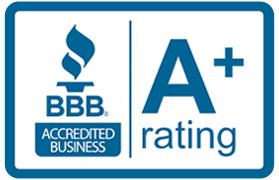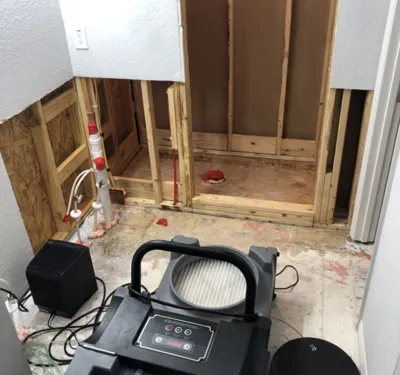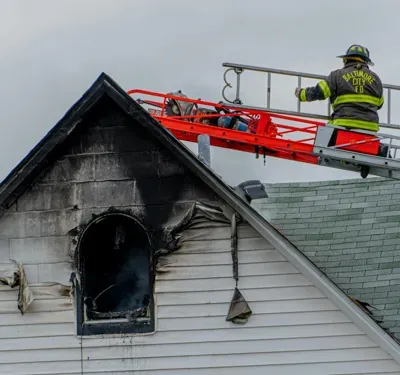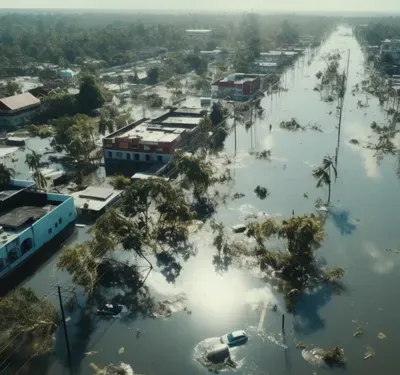Common Water Damage Issues and How Professionals Handle Them

Water damage can strike any home or business, often without warning, and can lead to costly repairs and extensive restoration. Whether caused by a natural disaster, a broken pipe, or an unexpected leak, the results of water damage can be devastating if not addressed promptly and properly. In this blog, we will discuss the most common types of water damage and explain how professionals, like Tampa Emergency Restoration Pros in Tampa, handle these issues to restore your property and peace of mind.
Understanding the Different Types of Water Damage
Water damage is typically classified into three categories based on its source and level of contamination. Understanding these categories can help homeowners identify the severity of water damage in their property and take appropriate action:
- Category 1: Clean Water Damage
This is the least harmful type of water damage. It typically comes from a clean source such as a broken water pipe or a malfunctioning appliance. While clean water damage can still cause significant damage, it generally doesn’t pose a health risk. However, if left untreated, it can quickly escalate to a more dangerous situation. - Category 2: Gray Water Damage
Gray water contains contaminants that can cause illness or discomfort. This type of water comes from sources such as washing machines, dishwashers, or aquariums. While not immediately dangerous, gray water can lead to health problems if not addressed promptly. - Category 3: Black Water Damage
Black water is the most dangerous type of water damage. It comes from sources such as sewage backups, flooding from rivers, or standing water that has been contaminated. Exposure to black water can cause severe health problems, making it essential to hire professionals to handle cleanup and restoration.
How Leaking Pipes Can Cause Extensive Water Damage
Leaking pipes are one of the most common culprits behind water damage in homes. A slow leak in a pipe can go unnoticed for a long time, but over time, it can cause significant issues. Whether in walls, under floors, or in ceilings, even a small, hidden leak can lead to a large amount of water damage if not detected early.
Leaking pipes can cause:
- Structural Damage: Water can weaken the foundation of a house, warp wooden floors, and compromise drywall and insulation.
- Mold and Mildew Growth: Persistent moisture creates an ideal environment for mold and mildew, which can spread quickly and pose health risks.
- Higher Repair Costs: The longer a leak is left undetected, the more extensive the damage becomes. Repairing water damage caused by a leaking pipe can be costly, especially if structural issues or mold growth are involved.
Professionals like Tampa Emergency Restoration Pros are equipped with the tools and expertise to locate hidden leaks, assess the damage, and perform necessary repairs. Using advanced techniques such as moisture detection devices and infrared cameras, they can identify problem areas before the damage becomes widespread.
How Floodwaters Affect Your Home and Belongings
Flooding, whether due to a heavy rainstorm, a hurricane, or a nearby river overflowing, can result in severe damage to your home and possessions. Water from floods is often classified as black water due to contamination from various sources like sewage, chemicals, and debris. This makes flood damage one of the most dangerous and costly forms of water damage.
Floodwaters can:
- Soak Carpets, Rugs, and Upholstery: Once these items are soaked, they may be beyond repair, especially if left wet for an extended period.
- Damage Electrical Systems: Water can short-circuit wiring, creating electrical hazards and potentially ruining appliances and electronics.
- Contaminate Drinking Water: Floodwaters can taint water supplies, leading to potential health risks for anyone who consumes the water.
- Warp and Ruin Wooden Structures: Floodwaters can warp floors, furniture, and other wooden structures, making them irreparable without replacement.
In cases of flood damage, professionals like Tampa Emergency Restoration Pros have the equipment necessary to remove standing water quickly, dry out affected areas, and sanitize the space to prevent the spread of bacteria or mold. They also follow strict safety guidelines to ensure that dangerous floodwaters don’t continue to pose a health risk to homeowners or restoration specialists.
Basement Flooding: A Common Water Damage Issue
Basement flooding is a common problem, particularly in areas that experience heavy rainfall or have poor drainage systems. Basements are often more susceptible to water damage due to their below-ground location, which makes them vulnerable to water seepage, plumbing issues, and flooding.
There are several reasons why basements are prone to flooding, including:
- Sewer Backups: Blockages in the sewer line can cause waste and water to back up into the basement.
- Leaking Foundation: Cracks or holes in the foundation can allow water to seep into the basement, particularly during heavy rainfall.
- Poor Drainage Systems: Without proper drainage systems, water can accumulate around the foundation, leading to basement flooding.
- Plumbing Failures: Leaking pipes or water heater malfunctions can result in standing water in the basement.
Basement flooding can cause severe damage, including mold growth, ruined carpets and furniture, and long-term structural issues. Because basements are often not checked as frequently as other parts of the home, water damage may go unnoticed for days or even weeks, increasing the severity of the damage.
Tampa Emergency Restoration Pros has extensive experience with basement flooding and can provide timely intervention to mitigate damage. Their team is trained in the use of industrial-grade pumps and dehumidifiers to quickly remove water and dry out the area, ensuring that mold doesn’t have a chance to grow.
Professional Water Damage Restoration Services Near You
Water damage can occur in many forms, but no matter the cause, it’s essential to address it quickly and professionally. Whether you’re dealing with leaking pipes, floodwaters, or basement flooding, calling in experts like Tampa Emergency Restoration Pros ensures that your property will be restored to its original condition. With their knowledge, advanced equipment, and efficient process, they can handle any type of water damage restoration, minimizing the risk to your home and belongings.
By recognizing the signs of water damage early and taking quick action, you can prevent costly repairs, minimize the health risks associated with mold, and safeguard your property for the future. Don’t wait for the damage to escalate—reach out to a trusted professional today.
FAQ About Water Damage Restoration
What should I do immediately if I experience water damage in my home?
If you experience water damage, the first step is to turn off the water source, if possible, and unplug any electrical appliances in the affected area. After that, call a professional water damage restoration service, like Tampa Emergency Restoration Pros, to assess and address the damage quickly.
How can I prevent water damage in my basement?
To prevent basement flooding, ensure proper drainage around your foundation, inspect for cracks, and maintain sump pumps. Regularly check plumbing for leaks, and invest in water-resistant materials in vulnerable areas to protect your home from future water damage.
How long does it take to remove water damage from my property?
The timeline for water damage restoration varies based on the extent of the damage. Typically, water extraction and drying can take anywhere from 24 to 72 hours. However, the complete restoration process can take several days to ensure all moisture is removed and repairs are made.
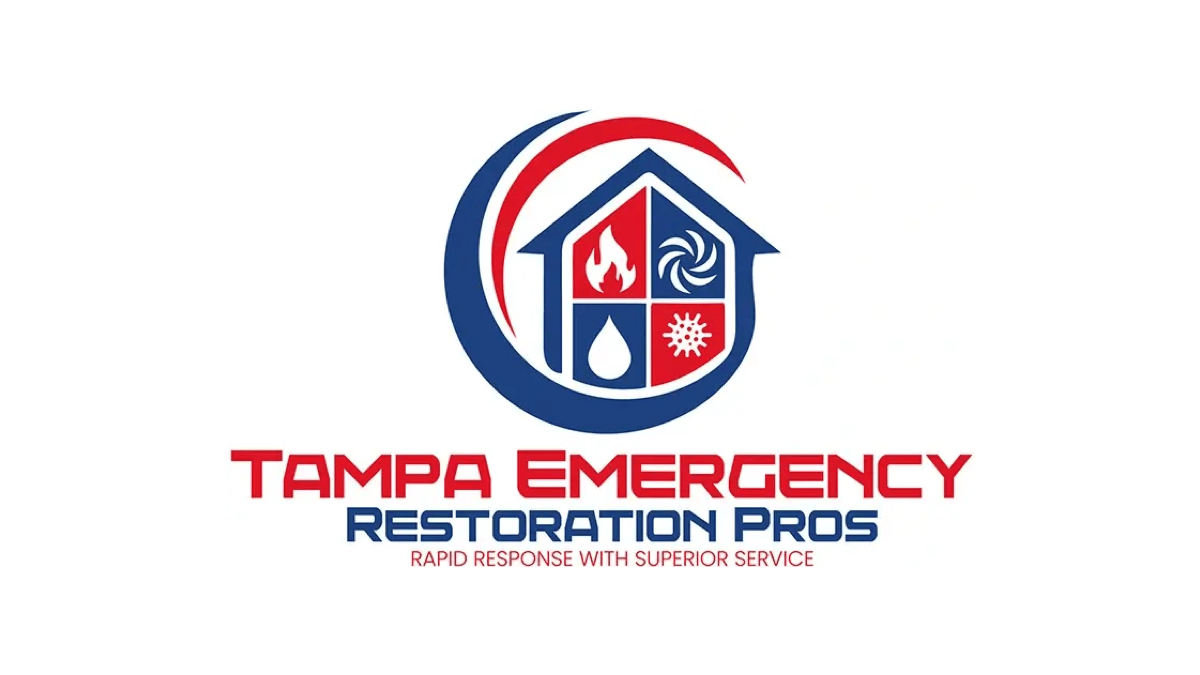
Other Blogs You May Be Interested In
Categories


